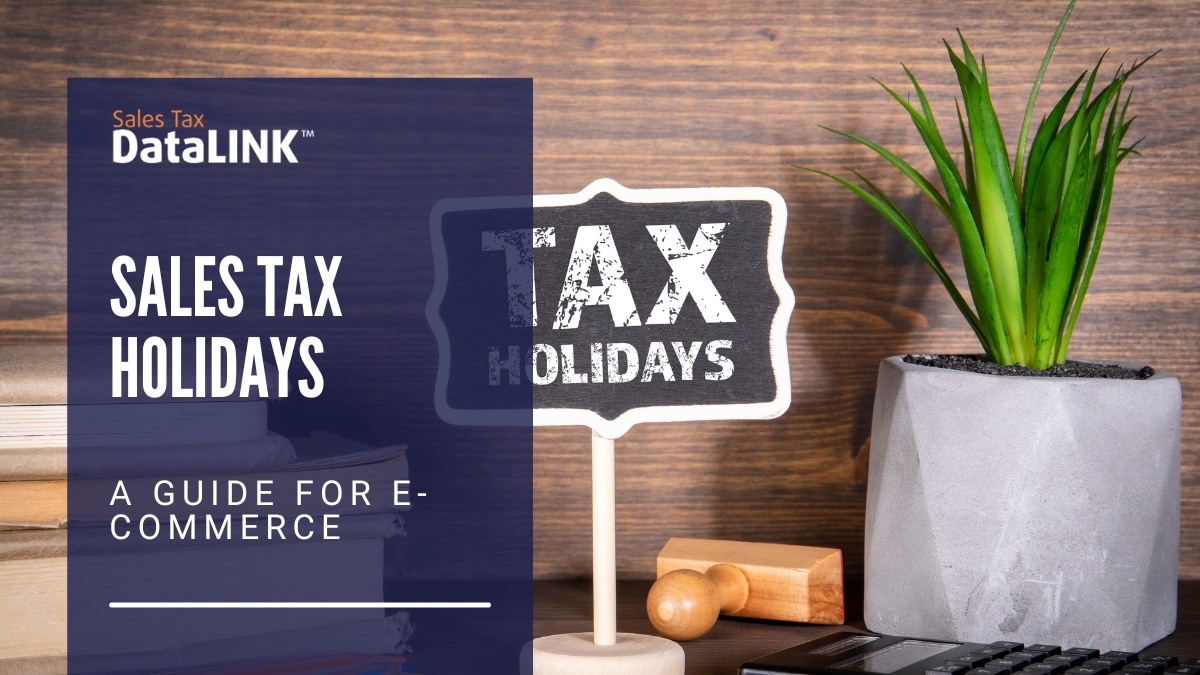With the proliferation of sales tax holidays enacted by states across the country, e-commerce sellers now face an added layer of complexity in compliance efforts that center heavily on the focus keyword: sales tax holidays. These temporary periods where certain products are exempt from sales taxation vary widely between states in terms of eligible items, dates of observance, and even year-to-year changes. As this blog will explore, navigating the intricacies of multiple sales tax holidays effectively places a substantial burden on any business with multi-state customers. From clothing rules to exemptions for electronics and back-to-school goods, gaining a full understanding of shifting holiday landscapes is a challenge, making this topic essential for sellers to address.
Non-Retail Businesses and Sales Tax Obligations
A lot of our clients are manufacturers, contractors, or in some other industry that doesn’t usually have to think much about sales tax. Retailers know they have to collect sales tax, and usually plan for it. We often hear from people who had no idea that they were supposed to collect sales tax. They sell mostly wholesale or provide services or sell digital products that are not taxable everywhere.
In many cases, they don’t even realize that they are required to collect sales taxes and file returns until they accidentally discover it
But we’ve reached a point where a lot of retailers are finding it tougher to comply with sales tax regulations. Specifically, e-commerce sellers can end up in hot water very easily. Just one of the issues: sales tax holidays.
Do you sell belt buckles in Tennessee?
It wouldn’t be so bad if there were a predictable rule about sales tax holidays. If every state made school clothes exempt on the first weekend of August each year, you could fairly easily learn when your taxable items were exempt. If you sold school clothes, you could make sure not to charge sales tax the first weekend in August.
That’s not how it works.
For example, Tennessee has a back-to-school sales tax holiday during which clothes are exempt from sales tax…but not belt buckles if they are sold by themselves. Belts with buckles are exempt, but separate belt buckles are not.
Clothing items costing more than one hundred dollars are still taxable, too. Handbags are taxable but backpacks are not.
In some states, clothing for children is exempt but not clothing for adults. Sales tax holidays can last a weekend, a week, or longer. They take place all through the year and can be different each year.
If you sell clothing, you have to keep up with complex rules all year round. Clothing is always sales tax-exempt in Minnesota. In New York, clothing under $110 is always tax-exempt except when it can be considered a costume or sports equipment. In short, every state has its own rules and sometimes they’re complicated. Add in the sales tax holidays and their variations, and it can be overwhelming.
This doesn’t apply only to clothes. Sales tax holidays target electronics, school supplies, food, diapers, guns, ammunition, products related to hurricane preparedness, and lots more. E-commerce sellers need to get up each day and find out which states where they have nexus are having sales tax holidays and which products are covered.
Not just retail
Retailers know that coping with sales tax can be a headache, especially now that one retailer can be subject to varying rules in thousands of jurisdictions. But you’re not off the hook if most of your sales are wholesale. Any direct-to-consumer sale that takes place during a sales tax holiday must be exempt from sales tax. It’s hard to keep track of everything. Fortunately, Sales Tax DataLINK offers complete sales tax compliance services. Call 479-715-4275 for immediate answers to your sales tax concerns.




